Astronomy
-
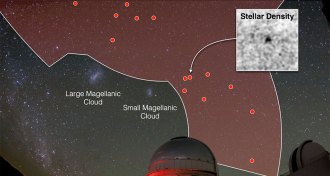 Astronomy
AstronomyEight more galaxies found orbiting the Milky Way
The dozens of satellite galaxies that orbit the Milky Way make excellent laboratories for studying dark matter.
-
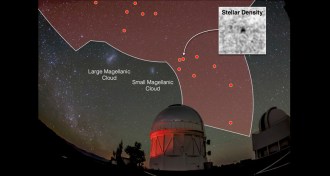 Astronomy
AstronomyEight more galaxies found orbiting the Milky Way
The dozens of satellite galaxies that orbit the Milky Way make excellent laboratories for studying dark matter.
-
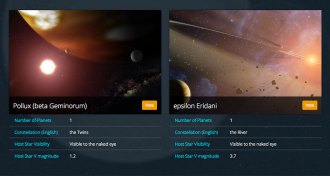 Astronomy
AstronomyChoose Ninja, Cervantes or Rosalind as names for exoplanets
Names for 20 exoplanets are in the hands of a discerning online audience.
-
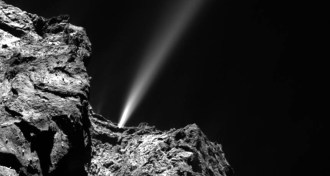 Planetary Science
Planetary ScienceComet 67P, Rosetta spacecraft cozy up to the sun
Comet 67P is shooting off brilliant jets of gas and dust as it swings in close to the sun, giving scientists clues to the space rocks chemical composition.
-
 Astronomy
AstronomyLucy’s new neighbor, downloading New Horizon’s data and more reader feedback
Readers discuss why Pluto's data will take so long to get to Earth, the role the cerebellum plays in creative thinking and more.
-
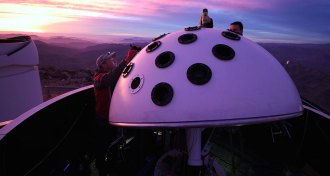 Astronomy
Astronomy24-eyed telescope takes full-sky movies every night
The Evryscope, a 24-telescope array in northern Chile, will nearly continuously watch for changes in the southern sky.
-
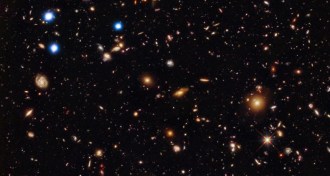 Astronomy
AstronomyYoung black holes evade detection
Supermassive black holes should be growing in the first billion or so years after the Big Bang, but astronomers can’t find them.
-
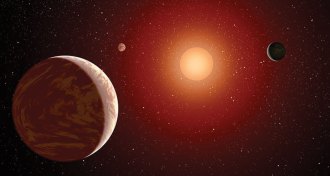 Astronomy
AstronomyFaint red stars can build water worlds drip by drip
Rocky planets around faint red stars have a hard time getting water, but they’re still probably the most common habitable locales in the Milky Way, new computer simulations suggest.
-
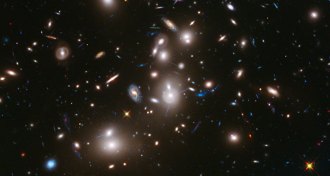 Astronomy
AstronomyCosmic threads may hide some of universe’s missing matter
Half the normal matter in the universe might be hiding in cosmic threads strung between clusters of galaxies.
-
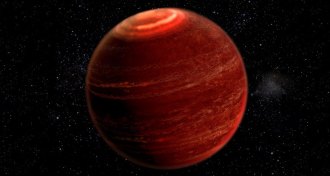 Astronomy
AstronomyDistant star has northern lights–like display
A dim star shows signs of auroral lights, the first detected on a body that’s not a planet or moon.
-
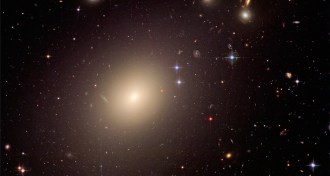 Space
SpaceBest cosmic ‘cradles of life’ may be elliptical in shape
Giant elliptical galaxies might harbor up to 10,000 times as many Earthlike planets than galaxies like the Milky Way.
-
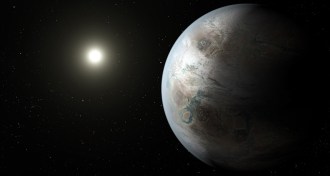 Astronomy
AstronomyKepler telescope identifies new ‘habitable zone’ planet
A new analysis of data from NASA’s Kepler mission has uncovered a planet orbiting a sunlike star that could be Earth’s “cousin.”